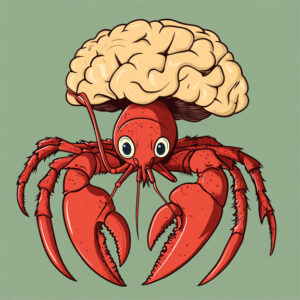 Some years ago, researchers created “minibrains” which are more formally known as cerebral organoids. As the name implies, a minibrain is a pea-sized collection of a few million human neural cells. A human brain consists of about 85 billion cells. These minibrains are usually created by transforming human skin cells. As should be imagined, these minibrains raise ethical concerns.
Some years ago, researchers created “minibrains” which are more formally known as cerebral organoids. As the name implies, a minibrain is a pea-sized collection of a few million human neural cells. A human brain consists of about 85 billion cells. These minibrains are usually created by transforming human skin cells. As should be imagined, these minibrains raise ethical concerns.
One concern is that as minibrains are human neural masses, they could develop consciousness. Since moral status often rests on mental attributes, this means they might someday possess a moral status, perhaps even a near person status. The epistemic challenge is determining if they achieve that status. This is a version of the philosophical problem of other minds: how do I know that other entities feel or think as I do? This problem also applies one of my favortie foods from my home state of Maine, the lobster.
Thanks to thinkers like Descartes, animals are often regarded as biological machines that lack minds. While scientists now see higher animals as capable of feeling and even thinking, lobsters are often seen as biological automatons that neither feel nor suffer. However, some people do think lobsters can suffer and Switzerland banned the boiling of live lobsters. The moral justification is that boiling lobsters alive is unnecessary suffering. Oddly enough, few take the next obvious moral step: if boiling them is wrong, then killing and eating them would also seem to be wrong.
I think that while lobsters are not mentally complex, they do feel pain. The reason for this is the same reason I think you feel pain: an argument by analogy. I know that I, as a living thing, feel pain and dislike it. I note that you, as another human, are like me. So, I infer that you also feel pain and probably dislike it. While lobsters are different from me, they do have some similarities: they are alive, they interact with their environment, they have nerves and so on. As such, they probably feel pain. It must be noted that there are those who deny that humans think or feel—so denying this of lobsters is not odd. Naturally, the relative simplicity of lobsters does suggest that they do not have a depth of feeling; but pain is probably one of the simplest feelings.
Moral concerns about minibrains and lobsters arise from their alleged ability (or potential) to feel. The epistemic concern is how to know this. As should come as no surprise, the same concerns arise about fetuses in the context of the abortion debate: the epistemic and moral problem is knowing when the zygote gains moral status. Obviously, if lobsters can have moral status, then fetuses would also get it rather early in the development cycle—at least at the point when they have a nervous system at least as complex as a lobster. As one would expect, people are often inconsistent in their moral views and some who might balk at eating a lobster might accept abortion, while someone horrified by abortion might happily devour the flesh of a slain baby cow.
In the case of minibrains, scientists want to use them for research. This can be morally justified on utilitarian grounds: the advantages gained from the possible suffering of the minibrains can be outweighed by the gains to science. In the case of lobsters, those who eat them would argue that their enjoyment in eating lobster outweighs the lobster’s suffering.
In both these cases, it is a matter of competing interests: the minibrains and lobsters would prefer to avoid suffering and death, while the humans want to experiment on them or eat them. The same reasoning also applies to abortion: there are competing interests between the woman who wishes to have an abortion and the possible interest of the fetus in not dying. While it can be contended that the fetus has no idea of interests, the same can be said of minibrains and lobsters. As such, the same moral reasoning can be applied in all three cases: it is competition between the interests of a fully developed person and an entity that is significantly inferior in capabilities. As such, the ethics of the minibrains seems to have already been addressed in terms of the ethics of how we treat animals and the ethics of abortion. This, of course, means that there is no resolution—but this is as expected.
